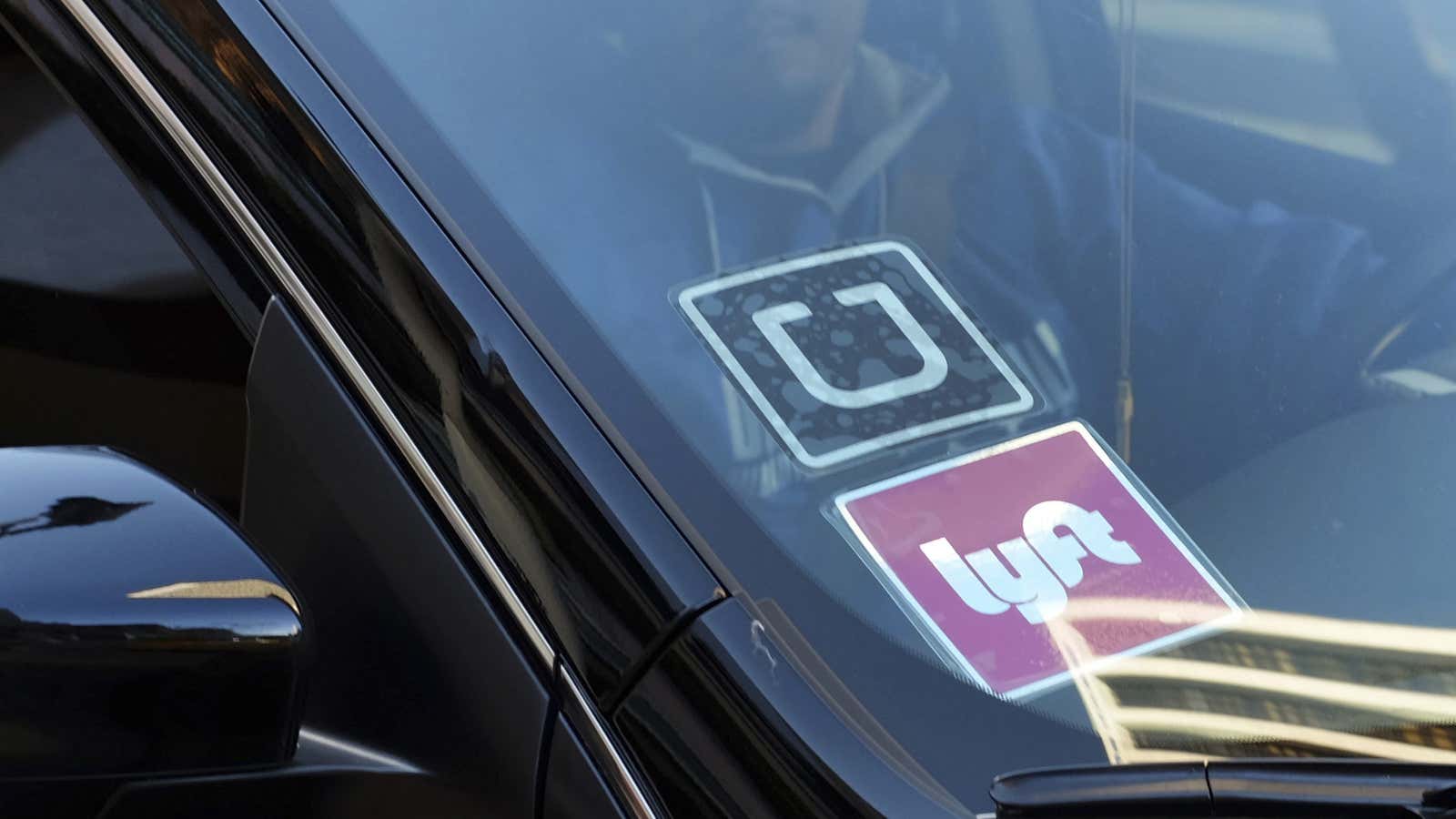The organized-labor group that supports New York’s drivers for Uber, Lyft, and other rideshare services has until now concerned itself with issues like fair pay and in-app tipping options. Recently, however, it detoured into the less-obvious arena of mental health, with a driver wellness center offering counseling, classes, and group therapy.
Arguably, the Independent Drivers Guild (IDG), a Machinists Union affiliate, had little choice. Disruption and competition in the ride-hailing industry has led to tragic consequences in cities like New York, where nine drivers, including yellow-car taxi drivers and those for ridesharing apps, have died by suicide in the past year. Desperation, depression, and anxiety are widespread problems in the industry, stemming from the financial pressures and the physical and mental burdens of the job, an IDG spokesperson says.
The multibillion-dollar brands that app-based drivers work for—the companies you would expect to build exactly this kind of program—have done little but pay lip service to their support for drivers’ wellbeing. Their longstanding position is that drivers are not employees but independent contractors, in control of their own success, and therefore not entitled to benefits or collective bargaining. (And America’s National Labor Review Board just agreed.) As Quartz’s Olivia Goldhill reported last month, Lyft just introduced a comprehensive mental health program for its corporate employees, but not drivers.
When Quartz at Work contacted Lyft for this story, a spokesperson sent us a statement about the company’s dedication to supporting the driver community. “Drivers are central to Lyft, which is why we rolled out Lyft Driver Services to help reduce their expenses, and created local driver advisory councils to give drivers a greater voice within the company,” it said. Uber has not yet responded to our request for comment.
The IDG developed its new program with money from the Black Car Fund, which offers drivers benefits for workplace injury and death, and is itself funded by a 2.5% consumer surcharge on all rides. It opened the center with a soft launch in December, and has already attracted dozens of drivers to its weekly discussion circles, led by a social worker. At the meetings, drivers can swap coping strategies, or commiserate with other drivers as they share stories about abusive and threatening passengers, the racist slurs they deal with, and the economic conditions of the job.
New York’s drivers, who commonly work full-time hours, have been guaranteed a right to minimum wage, which isn’t true in most places. Still, the app companies stand accused of both manipulating drivers’ behavior and constantly chipping away at drivers’ pay as they look for places to cut costs. Now that both Uber and Lyft are dealing with the fallout from unexpectedly disappointing IPOs, that pressure could get worse.
Group therapy
Drivers can join the IDG at no charge, and counseling (for individuals, couples, and groups) is also free. (It’s made available in English, Spanish, Urdu, Bengali, and Mandarin.) Social workers are also on hand for case work, when families need to navigate a housing or food crisis.
The discussion circles were designed to be the easiest point of entry for drivers, who, though isolated in their cars all day, may not see the value in one-on-one counseling or fear its stigma. To help normalize mental health therapies, the IDG is also training volunteer community leaders, including drivers and clergy, to spot high-risk individuals and act as ambassadors for the program. IDG staffers who already spend time at the city’s airport lots letting drivers know about vision benefits or flu shots are also spreading the word about the discussion circles and counselors. They say they casually check in with drivers about how they’re feeling on the job.
In a press statement, Deborah Ho, a counselor with IDG’s driver wellness program, said she and her fellow counselors “have been blown away by how ready drivers are to open up about what they are going through.”
Drivers can find more information on the IDG’s website or by calling (718)-841-7330. If you are experiencing a mental health crisis, call the City of New York’s 24/7 hotline at 1-888-692-9355 for immediate assistance.
Editor’s note: This story has been updated to include a statement from Lyft.
